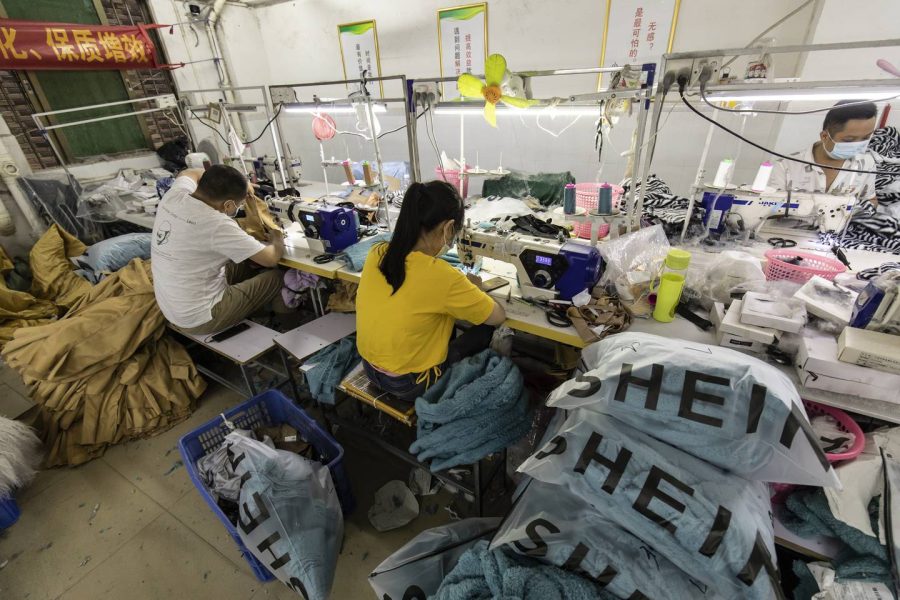The True Cost of Fast Fashion
Workers for SHEIN seen in their unsafe fast fashion environment.
December 16, 2022
These days, trends are cycling and clothes are being produced faster than ever. One of the most rapidly expanding fast fashion brands, Shein, is a perfect example of this. Shein adds thousands of clothes to its online store every day. Their prices are incredibly low, even lower than well-known budget fast fashion brands like Zara and H&M. This all sounds great, but what is the actual cost?
One of fast fashion’s major impacts is on the environment. As people choose to buy some clothes and throw away others we end up contributing to the 11.3 million tons of textile waste put in landfills every year. Shein makes the majority of its clothes from polyester which takes anywhere from 20-200 years to decompose. Shein claims that they try to use recycled polyester as much as possible however according to brightly.eco only 64 out of the 52,000 dresses on their site are actually recycled.
While it’s true that the prices may be low, the impact of shopping from companies like
Shein is high. Purchasing from fast fashion companies and quickly cycling through clothing is just contributing to issues of climate change and unsafe work environments.
Fast fashion shops often have unsafe working environments because it’s cheaper to have clothing produced in another country that has cheaper labor costs and fewer or less strict labor laws. It’s estimated that only 2% of fast fashion workers get paid a living wage according to fashionrevolution.org. This leads to continual poverty in developing countries and the exploitation of workers, some of which are likely children.
Sweatshops are super common in fast fashion. An investigation by the UK broadcaster Channel 4 found that Shein workers were working 18-hour days and they were penalized two-thirds of their daily wage if they made a mistake on a clothing item.
Not only does Shein not treat their workers well, they also have an extremely problematic past with items they’ve released. In 2020 they released a Swastika necklace for $2.50. Also around the same time, Shein was criticized for making Islamic prayer mats and marketing them as home decor, and they are known for stealing designs from up-and-coming designers as well.
Being aware of the issues with fast fashion is important, but what can you actually do? Not supporting fast fashion brands like Shein and Zara does more than you may think. Finding alternatives like thrift shopping, recycling your own clothes, or exchanging clothes with a friend are great budget-friendly alternatives. If you have a larger budget, supporting brands that are dedicated to reducing their carbon footprint and supporting their workers is a good alternative. Brands like Patagonia, Everlane, Lucy and Yak, and many others are all significantly more expensive but prioritize making a positive impact.






